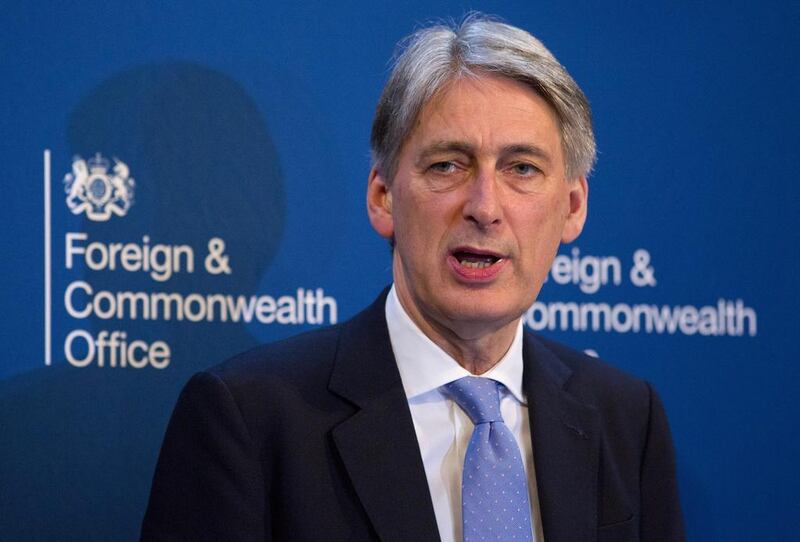In the 1990s, when the United States had no serious military adversary to justify its defence budgets, the acronym R/EGT began to be used in the corridors of the Pentagon. It stands for Resurgent/Emerging Global Threat – the “R” referring to the then slim possibility that Russia might rise from the ashes of the defunct Soviet Union to flex its muscles on the global stage.
The “emerging threat” was a blank space waiting to be filled. Soon enough Al Qaeda stepped into the vacuum. Whether Al Qaeda merited elevation to the status of global threat is debatable, but in 2001 George W Bush declared his “war on terror”.
Today there is no either/or in the choice for defence chiefs between global jihad and Russia. Both exist, at least in the minds of policymakers, as threats to be countered.
This abundance of threats comes at a time when the United States and its allies have no need to justify defence budgets. These are being cut across the board, at the same time as public opinion in the West is reluctant to engage in foreign conflicts.
The British foreign secretary, Philip Hammond, has waded into the debate on defence priorities by declaring that Russia “has the potential to pose the single greatest threat to our security”. Foreign Office expertise on Russia, which had been downgraded in recent years, is being hastily rebuilt. Russian speakers are once again in demand at the diplomatic service.
This statement has spawned many “new Cold War” headlines. There is no doubt that Europe has been shocked by Russia’s successful use of “hybrid war” in Ukraine, deploying disinformation, proxies and outright lies to confuse the wider world.
In his determination to prevent Ukraine becoming part of the western security system, Russian president Vladimir Putin has annexed the Crimean peninsula and is fomenting unrest in the east of the country. He has torn up the European security architecture, which relies on the respect of national borders.
But there is also a theatrical – even posturing – element to Mr Putin’s behaviour, which raises doubts about Russia as a genuine threat to the West. Mr Putin has been sending strategic bombers to the shores of Britain, to back up regular reminders that Russia is a nuclear-armed power. Yet the aircraft are Tu-95 bombers, first flown in 1952 and designed by the great aviation pioneer Andrei Tupolev. Reliable aircraft, yes, but cutting edge, no.
Mr Putin has just revealed to the Rossia TV channel that he gave orders to prepare for the annexation of Crimea in February last year. Previously he had said he decided that the peninsula should return to Russia only after a referendum, which took place in March. If he is ready to expose himself as a liar to brag about his foresight, it does not reinforce his reputation as “strategic” thinker.
While Russia is ramping up its military spending, there are questions of how much money there will be left for the defence budget after low oil prices and western sanctions have depleted revenues.
Meanwhile, many of the best and brightest Russians are leaving the country, fearful of Mr Putin’s creeping authoritarianism. Mr Putin seems happy to let them go. In his view, if they are not comfortable in his Russia, they are not true Russians.
For all its defence spending, Russia is not a global military power. Its ambitions cannot extend beyond Russia’s periphery where arguably it has some legitimate security interests.
The real prize in that arena is Kazakhstan, and that will be contested between Russia and China. The Russians are not coming to Europe – except for the rich and the well-educated who have already voted with their feet. The West should be concerned but not alarmed by Mr Putin’s posturing.
This situation with the jihadists is different, and not a nostalgic replay of old history. ISIL, the latest and most effective incarnation of the jihadist ideology, presents a direct threat to Syria and Iraq, and a challenge to all Muslims – almost one quarter of the global population.
The global interconnection of Muslims has created something genuinely new in the world. Every young Muslim – from Tunisia to Bradford – faces the same pressures: the temptations of rootless pop culture on the one hand and the authentic pull of religious identity on the other.
This has provided extraordinary scope for online radicalisation, which has led thousands of foreigners to flock to the ISIL-controlled territory in Syria and Iraq. Thanks to the clever use of social media, young people are communicating peer to peer, from ISIL-held Raqqa in Syria to the suburbs of Melbourne, Australia.
The West declared that jihadism was dead when the Arab Spring revolts broke out in 2011, and the protesters in Tahrir Square in Cairo seemed to want what young people in the West want. Yet whenever jihad is declared dead, it returns in a more brutal or more sophisticated form.
This is not to call for a second war on terror. The lessons have been learnt about the dangers of declaring war on concepts or tactics. In fact, it does not need a war at all, but something more complex. For European countries it requires a social mobilisation of resources at home. Muslim communities have lived in Britain for three generations yet there is still a strong sense of victimisation and otherness which preys on the minds of teenagers unsure about their identity.
It would be better to devote time and money to resolving this issue – with the help of Muslim authorities around the world – than gearing up for any kind of war. This has to be done with respect: Muslims are surely tired of hearing British prime ministers tell them what their religion is about.
This is not just a problem in British cities, but everywhere where young Muslims are found. This is the real global challenge of our time.
Alan Philips is a commentator on global affairs
On Twitter: @aphilps





